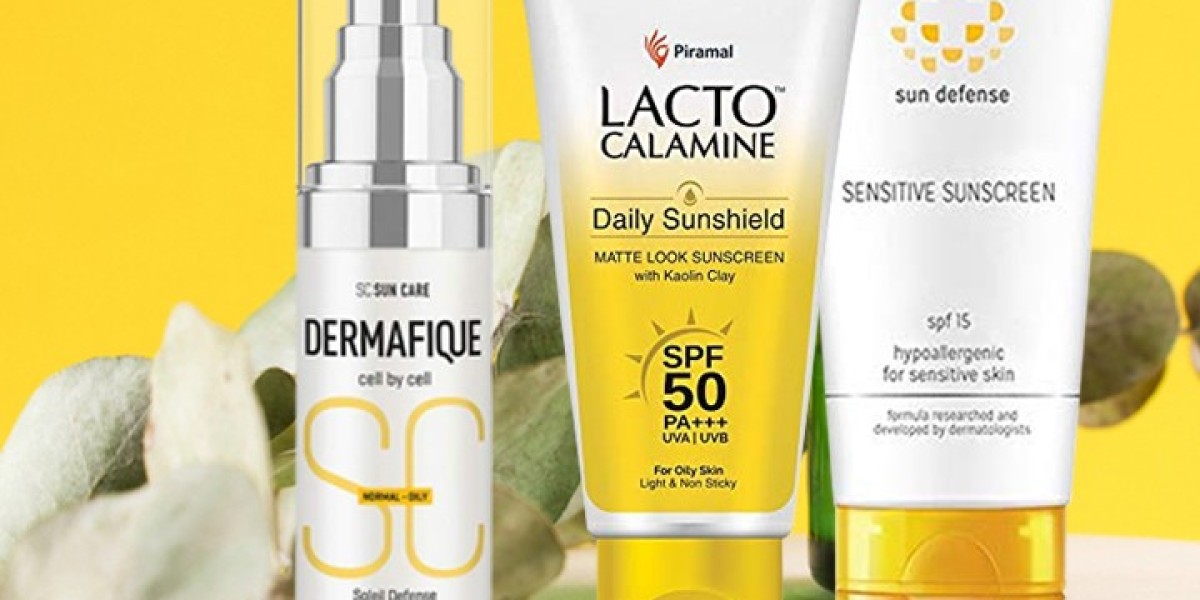Introduction
Sunscreen isn't just a skincare product; it's your first line of defense against the damaging effects of UV radiation. In a tropical country like India, where sun exposure is significant year-round, choosing the right sunscreen is crucial. Dermatologists recommend a range of sunscreens that cater to various skin types and offer comprehensive protection. In this article, we'll explore some of the best sunscreens recommended by dermatologists in India. One of the best sunscreens recommended by dermatologists in India is "La Roche-Posay Anthelios XL Ultra-Light Fluid SPF 50+." This sunscreen offers broad-spectrum protection against both UVA and UVB rays, making it effective in preventing sunburn and skin damage.
The Importance of Sunscreen
Before diving into the list of recommended sunscreens, let's understand why sunscreen is a non-negotiable step in your skincare routine:
UV Protection: Sunscreen shields your skin from harmful ultraviolet (UV) rays, preventing sunburn, premature aging, and reducing the risk of skin cancer.
Prevents Hyperpigmentation: Sunscreen helps prevent the formation of dark spots, uneven skin tone, and hyperpigmentation caused by sun exposure.
Anti-Aging Benefits: Regular use of sunscreen can slow down the development of fine lines, wrinkles, and sagging skin.
Now, let's explore some of the dermatologist-recommended sunscreens available in India:
Best Sunscreens for Different Skin Types
1. La Roche-Posay Anthelios 60
- SPF: 60
- Type: Broad-spectrum, suitable for all skin types
- Key Features: Offers high UVA and UVB protection, oil-free, non-comedogenic, and suitable for sensitive skin.
2. Neutrogena UltraSheer Dry-Touch Sunblock SPF 50+
- SPF: 50+
- Type: Broad-spectrum, ideal for oily and acne-prone skin
- Key Features: Non-greasy, matte finish, water-resistant, and provides long-lasting sun protection.
3. Lotus Herbals Safe Sun UV Screen Matte Gel SPF 50
- SPF: 50
- Type: Gel-based, suitable for oily and combination skin
- Key Features: Absorbs excess oil, imparts a matte finish, and offers protection against UVA and UVB rays.
4. Biotique Bio Carrot Ultra Soothing Face Lotion SPF 40
- SPF: 40
- Type: Ayurvedic formulation, suitable for sensitive skin
- Key Features: Enriched with natural ingredients, provides hydration, and helps soothe the skin.
5. Cetaphil Daylong Light Gel SPF 50+
- SPF: 50+
- Type: Gel-based, suitable for daily use
- Key Features: Offers broad-spectrum protection, absorbs quickly, non-sticky, and suitable for sensitive skin.
How to Choose the Right Sunscreen
Selecting the right sunscreen involves considering your skin type and specific needs:
SPF Level: Choose an SPF level that suits your daily sun exposure. Dermatologists often recommend SPF 30 or higher for adequate protection.
Broad-Spectrum: Ensure the sunscreen offers broad-spectrum protection, guarding against both UVA and UVB rays.
Skin Type: Opt for a sunscreen formulated for your skin type—whether oily, dry, sensitive, or combination.
Water Resistance: If you'll be swimming or sweating, opt for a water-resistant formula to ensure prolonged protection.
Additional Benefits: Some sunscreens offer added benefits like antioxidants, anti-aging ingredients, or hydration. Choose based on your skincare goals.
Frequently Asked Questions (FAQs)
Do I need to wear sunscreen indoors?
Yes, UV rays can penetrate windows, so it's advisable to apply sunscreen even when indoors, especially if you are near windows or spend considerable time in well-lit rooms.
How often should I reapply sunscreen?
Reapply sunscreen every 2 hours, or more frequently if you are sweating or swimming. Even water-resistant sunscreens can wear off with extended water exposure.
Can I skip sunscreen on cloudy days?
No, UV rays can still penetrate clouds, leading to potential sun damage. Apply sunscreen regardless of cloud cover.
Can sunscreen cause breakouts?
Some sunscreens may be comedogenic, potentially leading to breakouts. Look for non-comedogenic or oil-free options if you have acne-prone skin.
Can I use sunscreen under makeup?
Yes, you can apply sunscreen before your makeup routine. Allow it to absorb for a few minutes before applying other products.
Is a higher SPF always better?
While higher SPF offers more protection, the difference between SPF 30 and 50 is marginal. What matters most is applying an adequate amount and reapplying as needed.
Conclusion
Protecting your skin from the sun's harmful rays is essential for maintaining healthy and youthful skin. Dermatologists recommend a variety of sunscreens tailored to different skin types and preferences. By incorporating a high-quality sunscreen into your daily routine and following proper application guidelines, you can enjoy the outdoors while keeping your skin safe and radiant.
Remember, sunscreen is not just a cosmetic product; it's an investment in your skin's long-term h







